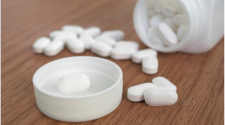Mouthwash is good for you, according to our Surrey dentists. But, it is not a substitute for proper oral care, the most basic of which is brushing your teeth. One should brush their teeth after meals but for the worker on a busy schedule, brushing after breakfast and dinner will do. If you’re on the go, rinsing with mouthwash after lunch is a good substitute for brushing.
Rinsing your mouth with mouthwash has many benefits, including:
- Fresher breath – this is the most obvious benefit of rinsing our mouths with mouthwash. With it, you’re also confident that you’re not causing discomfort to the person you’re talking to.
- Less cavities – mouthwash with fluoride fights the bacteria that causes cavities
- Helps prevents gum disease – since mouthwash fights bacteria, not only cavities are reduced but also the inflammation and gum infections that bacteria can cause
- Helps soothe sores – a cleaner mouth also helps sores from forming, which are not only unsightly but also make eating and talking irritating
- A cleaner mouth also helps protect babies in pregnant women by preventing the mouth infections that can enter the bloodstream and cause complications
But mouthwash is not a cure-all for proper oral care and hygiene. Mouthwash does not cure halitosis. It can mask the symptoms temporarily, but having chronic bad breath is a sure sign that you are not practicing proper oral care. Like having a toothache or bleeding gums, constant bad breath must be consulted with a dentist, who will help you get rid of it.
Many mouthwash formulations contain alcohol, and regular use can dry the mouth. Excessive use of mouthwash with alcohol has also been linked to oral cancers, but the evidence is not definitive yet. If you have mouth sores, mouthwash containing alcohol can irritate them instead. Another mouthwash component, chlorhexidine, has been linked to killing off beneficial mouth bacteria which produces nitric oxide. Nitric oxide is beneficial to the cardiovascular system. Killing the beneficial bacteria could have the effect of raising one’s blood pressure.
There is no need to use mouthwash after brushing your teeth, as they are already clean as it is. If you use mouthwash 3-4 times a day, that is an excessive use of the product. That fresh feeling when you use mouthwash is also achieved by proper brushing, which includes your gums and tongue.
















